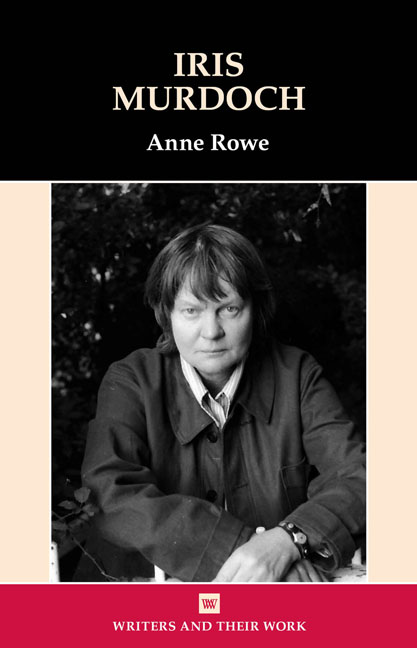Book contents
- Frontmatter
- Dedication
- Contents
- Acknowledgements
- Biographical Outline
- Abbreviations
- Introduction: Iris Murdoch (1919–1999)
- 1 A Writing Life: 1954–1995
- 2 Writing the Novel of Ideas: The Philosopher and Public Intellectual
- 3 Writing Sacraments: The Holy Atheist
- 4 Writing ‘A New Vocabulary of Experience’
- 5 Writing the Landscape: The Island of Spells and the Sacred City
- Afterword: ‘Onward!’
- Notes
- Select Bibliography
- Index
Introduction: Iris Murdoch (1919–1999)
- Frontmatter
- Dedication
- Contents
- Acknowledgements
- Biographical Outline
- Abbreviations
- Introduction: Iris Murdoch (1919–1999)
- 1 A Writing Life: 1954–1995
- 2 Writing the Novel of Ideas: The Philosopher and Public Intellectual
- 3 Writing Sacraments: The Holy Atheist
- 4 Writing ‘A New Vocabulary of Experience’
- 5 Writing the Landscape: The Island of Spells and the Sacred City
- Afterword: ‘Onward!’
- Notes
- Select Bibliography
- Index
Summary
‘Jesus God how I want to write’ wrote Iris Murdoch to her friend Frank Thompson in 1943 with an intensity that had already been burning for years (LOP 31). Write she did, and went on to achieve celebrity status with twenty-six novels that span almost the entire second half of the twentieth century. They began with Under the Net in 1954 and one book appeared approximately every eighteen months over the next forty years. Her substantial philosophical output as a respected philosopher was, and still is, relatively unfamiliar to many readers, though her philosophy, as well as her fiction, extended boundaries and challenged contemporary practice: the novels by effortlessly merging popular fiction with serious moral issues and stylistic experimentation; the philosophy by contesting the mainstream philosophical thinking of her day and offering a workable, practical alternative. Her reputation flourishes in academia into the twenty-first century where, as a novelist, her books are critically acknowledged as a paradigm for morally responsible fiction, and as a philosopher, her work is intrinsic to contemporary debate in the field of virtue ethics. Her philosophy and her fiction are currently debated at international conferences and symposia, and since 2000, a raft of publications in the UK, Europe, Japan, China and the USA is redefining Murdoch not only as an eminent novelist but also as a serious thinker.
Her idiosyncratic brand of novels, however, carved out Murdoch's place in popular British culture. With their combining of serious idea play and gripping storytelling, her books were intellectually challenging, a compulsive read and an immediate success with the reading public and scholars alike. The morally paralyzing obsessions of her characters, situating the erotic and the sexual as defining aspects of human life, reflected common emotional and moral dilemmas and chimed with her readers’ own life experiences. Simultaneously they pushed against accepted social and moral boundaries, striking a chord also with those who, like her, identified themselves as outside the norm and lived more precariously on the margins of society. She did not shy away from tackling the extremes of mental suffering that were neither openly acknowledged at the time nor being confronted by other mainstream writers who did not so presciently perceive them as crucial to individual and public well-being.
- Type
- Chapter
- Information
- Iris Murdoch , pp. 1 - 8Publisher: Liverpool University PressPrint publication year: 2019

